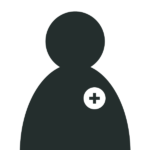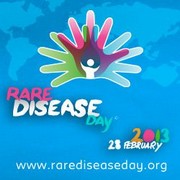EXCLUSIVE POST – Medicine 2.0* is an international event, focusing on social media, medical apps and Web 2.0. Now in its fourth year, the congress has seen growing attendance with over 400 at the September 16-18, 2011 at Stanford University. The conference takes a more academic approach than Health 2.0 Conference but this year included demos of healthcare apps as well.
EXCLUSIVE POST – Medicine 2.0* is an international event, focusing on social media, medical apps and Web 2.0. Now in its fourth year, the congress has seen growing attendance with over 400 at the September 16-18, 2011 at Stanford University. The conference takes a more academic approach than Health 2.0 Conference but this year included demos of healthcare apps as well.
The conference certainly had a flavor of Stanford with speakers like Jennifer Aaker [http://gsbapps.stanford.edu/facultyprofiles/biomain.asp?id=52182959] (The Dragonfly Effect), B.J. Fogg [http://www.bjfogg.com/] of the Stanford Persuasive Tech Lab, [http://captology.stanford.edu/] and Katy Plant, Patient Education Research Center [http://patienteducation.stanford.edu/staff.html]. Aaker drew on an experience with family and friends of a student mobilizing others through creating a new online social network to find a match for an urgently needed bone marrow transplant. This included a blog, twitter, YouTube videos, Facebook and Google Groups. The lack of south Asians in the Bone Marrow Registry lead to an accelerated push to utilize social media to recruit that community to find 20,000 volunteers and the potential for a perfect match. In 11 weeks they signed up over 24,000 and found a perfect match. 266 additional volunteers were matched with others. The lessons learned were: “develop a clear goal, reverse the rules, tell a good (truthful) story, design for collaboration.” Aaker concluded with a challenge to the audience to sign up for the Bone Marrow Registry right after her talk. Many did. [http://www.slideshare.net/DragonflyEffect/the-dragonfly-effect-ink-conference-6263412]
A first this year was with a session devoted to social media and Continuing Medical Education (CME). Speakers, such as, Joseph Kim and Lawrence Sherman gave specific examples of how CME providers are using social media to begin to find disruptive innovation in this traditional area of education. Dr. Joseph Kim contrasted the traditional approach of designing educational offerings based on discussion with thought leaders with his use of Sermo to survey physicians about creating and discussing new CME content. He also reviewed other private social media platforms specifically for physicians, such as, Doximity and QuantiaMD. He also gave an example of a discussion about vaccines on the Facebook page of the American Association of Family Practitioners as an example of a more open discussion forum sponsored by a medical society (https://www.facebook.com/familymed?sk=app_2373072738).
Behavioral change and self monitoring emerged as key themes, specifically how to utilize social media and mobile applications. Behavior change presentations included those through text message reminders for HIV and addiction and self-monitoring through mobile apps which integrate with medical devices, such as, bant for Type 1 Diabetes [http://www.bantapp.com/].
The continued emphasis on promoting the role of e-Patients was evident in a dedicated track on the first day and the concluding keynote by Susannah Fox of the Pew Internet Trust who told stories from her qualitative research sitting with families and ePatients telling their stories. Her recent research on Peer-to-Peer healthcare focused on how online social networks can connect patients to new treatments as well as provide peer support in ways that were not possible in the past. [http://pewinternet.org/Presentations/2011/Aug/NIH-Mind-the-Gap.aspx]
One patient story which developed into an online community is Crohnology. [http://crohnology.com/]. This was one of many examples of the 20 and under generation taking leadership in social media to create change in health care. This “platform of information sharing between patients in the Crohn’s & Colitis community” was initiated by Sean Ahrens, a 12 year veteran of Crohn’s Disease who saw the need to learn about how others cope with this silent disease. It is a mix of social networking, structured questions & answers, and sharable health profiles. Current medications, diet and supplements are unique to each patient as are how symptoms are managed. The success of the site is a testament to the need for such communities in all conditions.
Another 20 something success was Vineet Sigal who had a vision to create text messaging to improve compliance of patients in free clinics. [http://anjna.org/projects]. Finding that the target population had cell phones but not necessarily access to the Internet, he designed the SMS Project as a community-based action confirmation and reminder system. Based on principles of achievable goals and small successes, it uses a buddy system of a community health promoter and the patient to set individual goals and decide what types of messages will be helpful to promote adherence. The project was technically simple using only a GSM modem, computer and SMS software.
Two themes came through loud and clear:
- behavior change is possible through social medial and mobile apps
- Social media can change how healthcare is delivered in a patient-centric, participatory medicine approach.
The hope is that these themes will reverberate far beyond the conference attendees and two days at Stanford.
Some presentations are available here: http://www.slideshare.net/event/medicine-20-2011/slideshows
*[http://www.medicine20congress.com/ocs/index.php/med/med2011/]






